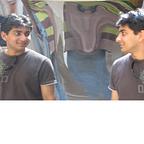MOSQUITO !
Mosquito Obliterating System using Quadcopters and Intelligent Technology for Operation
“If you think you are too small to make a difference, you haven’t spent the night with a mosquito.” — Dalai Lama
In tropical regions, swarms of mosquitoes regularly invade homes, causing discomfort and posing significant health risks to residents due to their ability to transmit some of the deadliest diseases through their bites.
There are several steps taken to prevent mosquitoes from entering the homes and reduce the risk of mosquito bites.
Less talked about is the annoying buzzing sound of the mosquitoes when in deep sleep, leading to disturbed sleep and effecting the overall health in the long term due to sleep deprivation.
Lately, I have incorporated a habit of using a mosquito racquet before going to bed, which has proven to be effective in reducing the likelihood of being disturbed by mosquitoes at night. However, even with this routine, I still occasionally encounter persistent mosquitoes that buzz around my ear, causing sleep disruption and negatively impacting my productivity the following day.
Poor quality of sleep can have adverse effects on the following day’s productivity and may also lead to long-term health problems. Although I have not experimented with other mosquito control tools, I believe that the presence of one resilient mosquito may persist. Is there a more autonomous and active approach to hunting and eliminating these mosquitoes, particularly at night when I am sound asleep? Could autonomous drones driven by Artificial Intelligence ( AI) be beneficial in this regard?
Picture a drone that is capable of automatically identifying mosquitoes in low-light situations using cameras, then navigating itself and tackling the mosquito using an extendable mesh that delivers a 3500V DC voltage on contact. This would result in an immediate killing of the mosquito. No chemicals involved and no light pollution like mosquito zappers / traps.
The safety concerns surrounding autonomous drones flying in and around home cannot be overlooked. A recent incident involving Indian playback singer, Benny Dayal, who was hit by a remote-controlled drone during a live performance, further highlighted the potential dangers. Although he luckily recovered with minor injuries, this incident has sparked discussions about drone safety, particularly in crowded and civilian spaces.
The use of drones for video coverage during special occasions, festivals, and live concerts has become increasingly popular in recent times, with a soaring demand for such coverage. However, flying drones in such crowded spaces can also be potential hotspots for accidents. Unfortunately, most drone accidents today occur due to human error, especially when the operator lacks experience.
While autonomous drones powered by AI may eventually take over from human operators, the risk of accidents remains. Thus, adequate safety measures must be incorporated, similar to the advanced driver-assistance system ( ADAS) found in modern vehicles. This will ensure the safe operation of drones in crowded and civilian spaces.
With the increasing use of drones in civilian spaces, it is not far-fetched to imagine them becoming a part of our everyday lives, even entering our homes like a mobile leash. However, while drones are a relatively new addition to our domestic environments, the risk of hacking into smart home automation systems is not.
Drones themselves could also be vulnerable to hacking, allowing cybercriminals to take control of them and potentially eavesdrop on homes using the camera and audio systems. Therefore, it is essential to implement adequate cybersecurity measures to protect these systems from being hacked, as the consequences of such a breach could be severe.
In my opinion, the most significant challenge in using autonomous drones to tackle mosquitoes would be their maneuvering capabilities. Nature has perfected the mosquito’s flight dynamics over millions of years, making it a challenging task to replicate in a drone. Despite their negative aspects, mosquitoes are a remarkable creation, evolved with exceptional flight skills that we have yet to master.
Tackling these creatures in flight requires a level of intelligence that current AI technology may not possess. However, with advancements in AI, we can hope to overcome this challenge in the future, giving us a better chance of enjoying uninterrupted sleep. Ultimately, just like the dinosaurs, we too may go extinct ( mosquitoes may not), but until then, let’s work towards developing the technology needed to tackle this problem.
